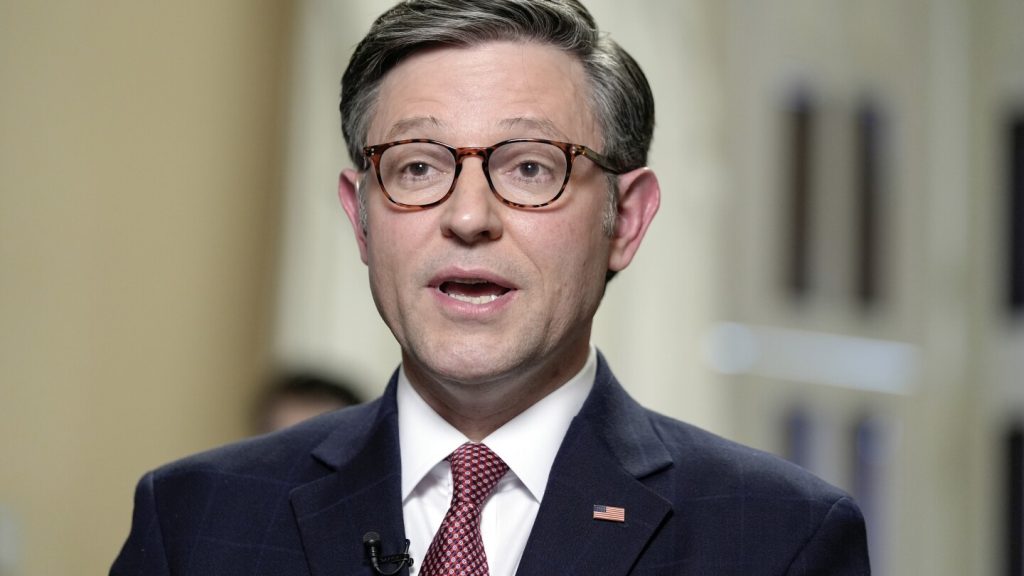In a rare show of bipartisan support, the House is moving forward with a $95 billion national security aid package for Ukraine, Israel, and other U.S. allies. House Speaker Mike Johnson has been working to salvage the funding, particularly for Ukraine in the face of Russian aggression. The House has been slow to act, but with President Joe Biden’s endorsement and even support from former President Donald Trump, the package is moving closer to passage.
Despite facing opposition from hardline conservatives within his party, Johnson has managed to push the aid package past a key procedural hurdle with the support of Democrats on the House Rules Committee. However, he will need Democratic support once again to clear the next procedural vote and overcome Republican amendments that could derail the package. One amendment, proposed by Rep. Marjorie Taylor Greene, would reduce spending for Ukraine to zero and launch a bid to remove Johnson from the speaker’s office.
With a narrow majority in the House, Johnson can only afford to lose a few Republican votes, forcing him to seek support from Democrats to pass the package. This dynamic has led Johnson to compromise on some security measures at the U.S.-Mexico border in order to secure Democratic backing. The aid package has been divided into separate parts, with votes expected on each component individually, including aid for Ukraine, Israel, and Indo-Pacific allies.
The aid package also includes provisions that align with Republican priorities, such as seizing Russian assets to rebuild Ukraine and imposing sanctions on Iran, Russia, China, and criminal organizations. Additionally, there are proposals to ban the video app TikTok if its China-based owner does not sell within a year. Passing each bill will require Johnson to form bipartisan coalitions, as some progressives are hesitant to support military aid for Israel due to concerns over the destruction of Gaza. The components will be stitched back together into a single package before heading to the Senate.
Overall, the aid package for Ukraine and other U.S. allies is making progress in the House, despite facing opposition from hardline conservatives. Johnson’s bipartisan approach and willingness to work with Democrats have been key to moving the package forward. As the House prepares for final votes on the individual components of the package, Johnson will continue to navigate the challenges of a divided Congress to ensure critical security funding is approved.


